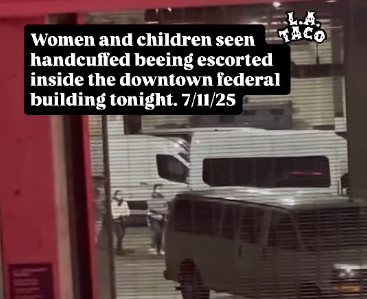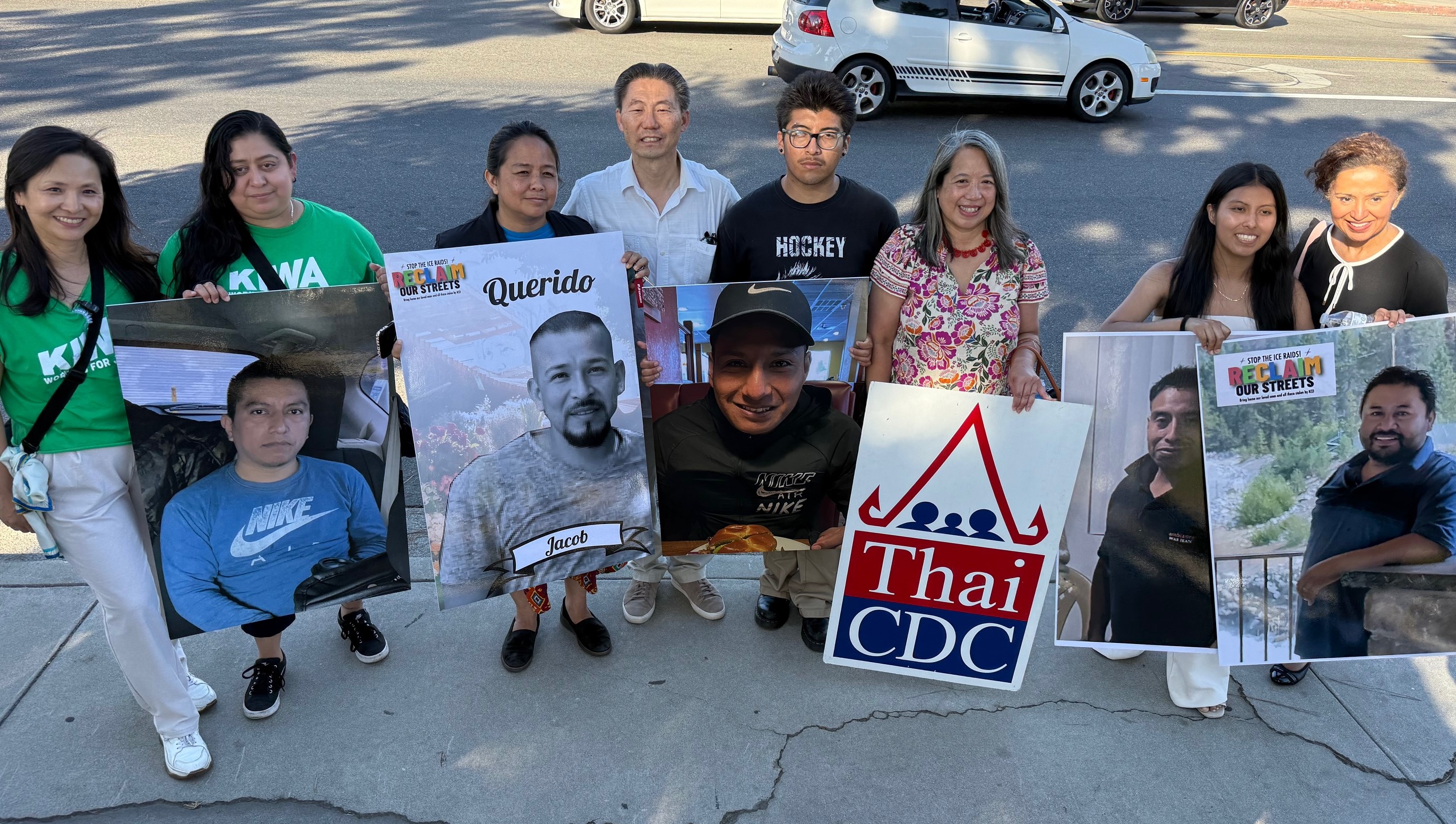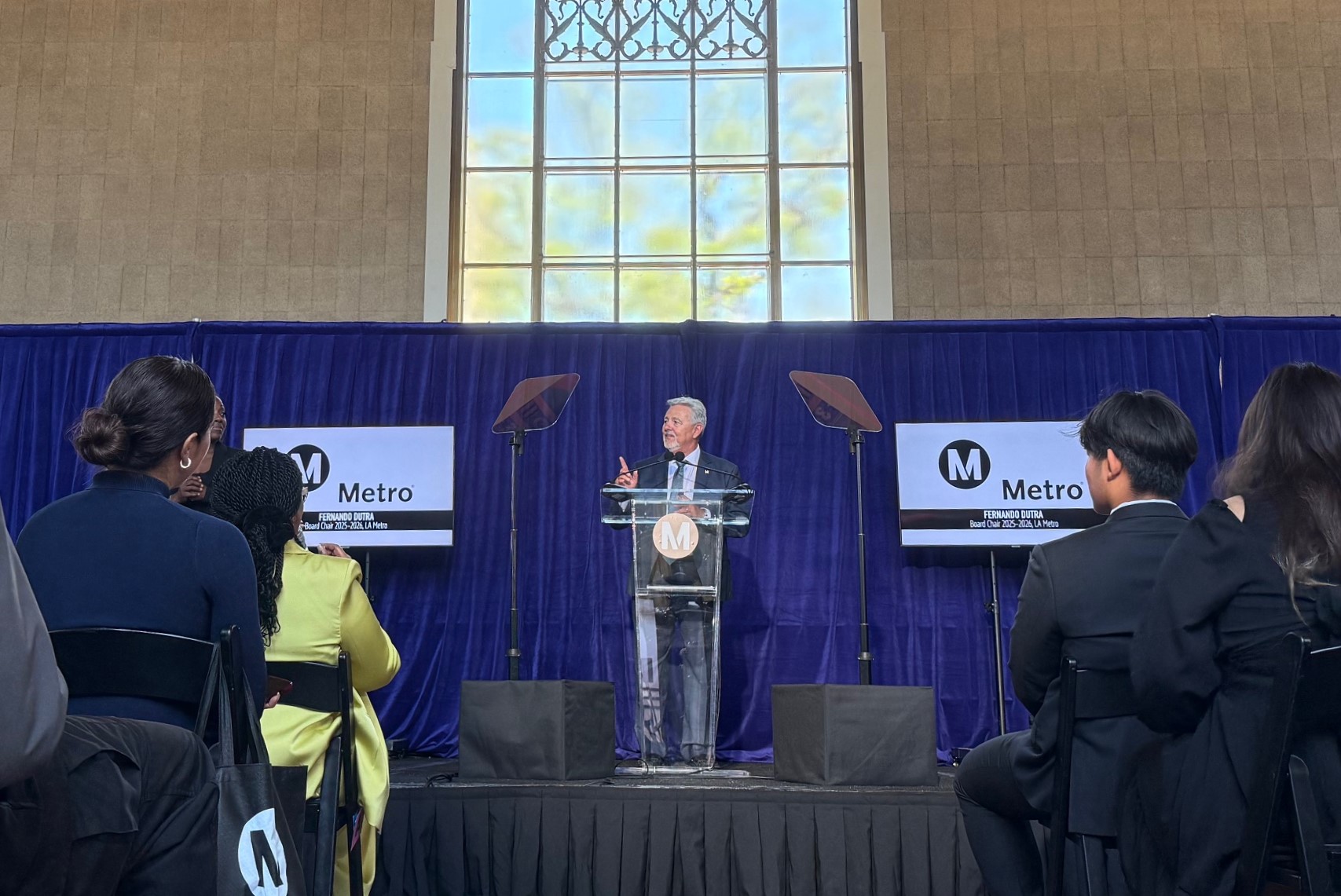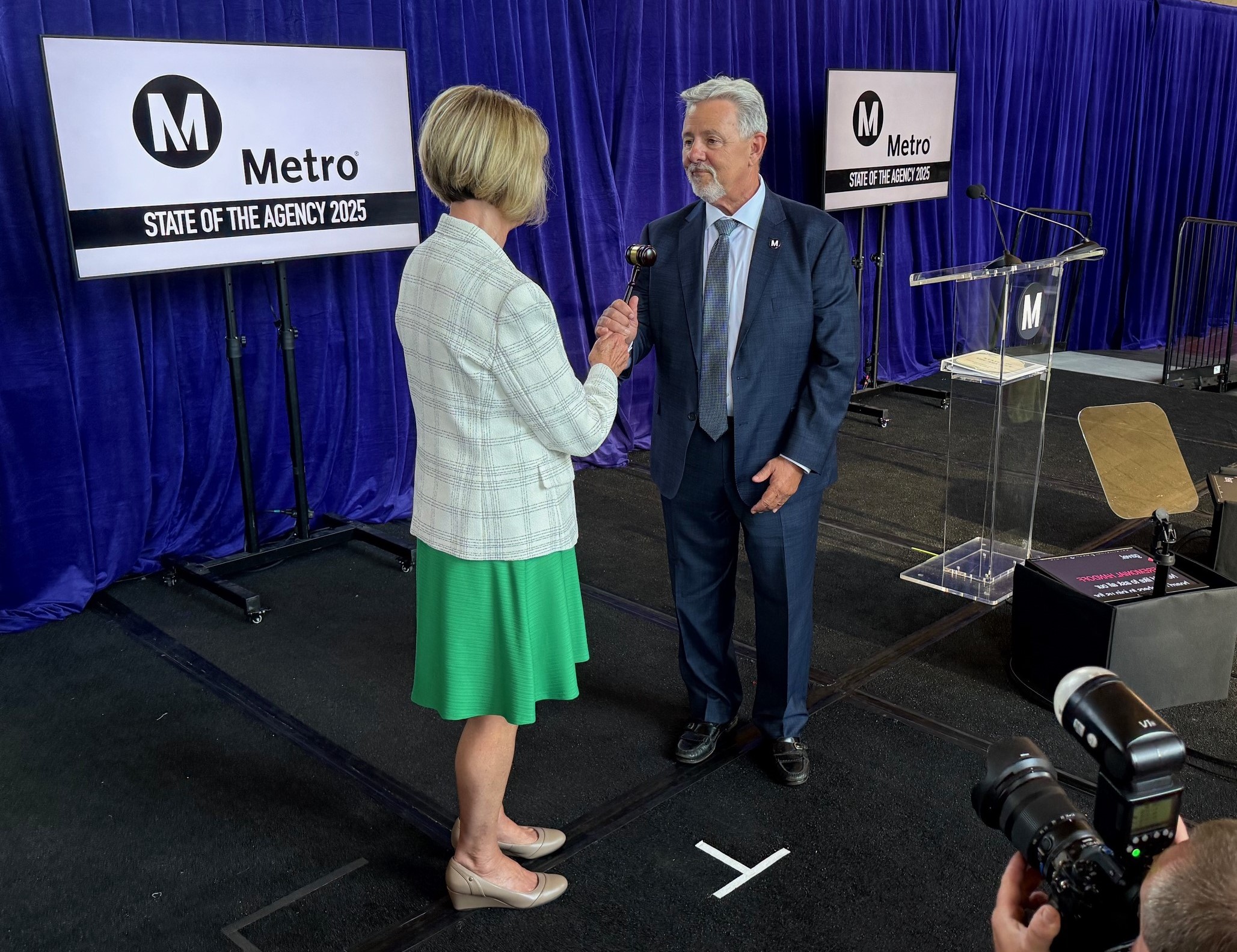
Tonight in Agoura Hills, Metro kicks off a series of community meetings to receive input on the agency's draft expenditure plan for a likely November 2016 half-cent sales tax ballot measure. There are nine face-to-face meetings throughout April, and a final on-line forum April 30.
SBLA reviewed the overall outline of Metro's expenditure plan earlier. There is plenty to like in it, but there is also a whole lot of highway spending that livability proponents may have to tolerate in order to get more car-centric voters to favor the overall plan.
At the Metro board meeting where the plan was introduced, there were nearly two hours of public comment representing a wide range of public views. This was followed by a lengthy discussion among the Metro board.
The most numerous public comments were in opposition to the $6 billion tunnel proposed for the 710 Freeway north. The 710 North project is not explicitly funded in the draft, but there is plenty of unallocated highway funding that could be directed to the project at some future date. Opponents of the 710 North project are requesting that it be explicitly excluded from the measure. One speaker suggested that any 710 tunnel funding should go instead to tunneling for the Crenshaw/LAX rail line. That potential tunnel is a safety measure requested in public testimony by representatives of the Crenshaw Subway Coalition.
Other public testimony focused on moving later-year projects up into earlier slots. L.A. Mayor Eric Garcetti responded to this thread encouraging speakers to support the ballot measure because sometimes, depending on securing outside funds, later year projects have strong potential to be shifted to sooner dates.
There was already jockeying at the board level with directors James Butts, Diane DuBois, and Don Knabe putting forth a motion to accelerate later year Measure R projects before any new projects enter the queue.
Since the draft plan was made public, other outlets have posted important analysis of it. More plan analysis and the upcoming meeting schedule are after the jump.
Last week, in a CityLab article entitled To Ease Traffic, L.A. Needs Much More Than Trains, Laura Bliss brought up many important points. From the article:
[T]he biggest factors that affect ridership are largely out of the hands of transit agencies. These include the (falling) price of gasoline, and the many quiet subsidies that cities allow to support automobiles. “It’s the free parking. It’s the invisible costs that developers absorb and that drivers don’t have to pay, from widened streets to new left-turn lanes,” Michael Manville, a professor of urban planning [...] tells CityLab. So long as vehicles are cheap and convenient, it’s going to be hard for transit to compete.
Further, Bliss responds to critics who measure transit primarily by its benefits to drivers, a la recent criticism that the Expo Line has not solved congestion on the 10 Freeway:
Transit doesn’t have to reduce traffic to be successful. Indeed, its central aim probably shouldn’t be serving the people who don’t actually use it. Transit’s best selling point is that it offers mobility to those who, for any number of reasons, can’t or choose not to drive. It also underpins bustling economic activity, pushes people into job centers, and improves long-term sustainability.
Active transportation advocates, including the L.A. County Bicycle Coalition, Investing in Place, and many others, continue to push for ten percent of overall funding to support walking and bicycling, and equity for underserved communities. The overall pie chart shows a two percent allocation for bike and walk projects and programs, but, according to the LACBC's analysis, the overall active transportation slice is actually closer to nine percent:
For the first time, Metro is creating a funding stream with local dollars to strategically invest in first and last mile access to bus and rail, safe routes to school, and a regional active transportation network. One percent of the measure is set aside for a new regional active transportation program dedicated to these purposes. Subregional active transportation projects and programs comprise an additional 5 percent of the measure. After factoring in subregional complete streets projects where active transportation is the central purpose of the expenditure, a total of nearly 9 percent of the measure is dedicated to making Los Angeles County a safer and more convenient place to walk and bike. Reflecting the relative cost-effectiveness and simplicity of active transportation projects, the majority of this funding is available early in the life of the measure to enable local jurisdictions to make these improvements quickly.
From Investing in Place's early analysis:
We can’t focus on reducing vehicle miles traveled (VMT) and meet greenhouse gas emissions reduction targets while focusing on expanding highways. Metro’s draft plan estimates a 4 percent VMT reduction over the next 40 years while investing in expanding highways (and essentially sprawl) in the desert. This target is inconsistent with SCAG’s [Southern California Association of Governments'] Regional Climate targets calling for reducing greenhouse gas emissions by 13 percent by 2035 and VMT per capita reduction of 10.2 percent by 2040.
There is clearly a lot riding on Metro's 40-50 year expenditure plan. If you like what you see and want to keep it in the plan, or if you want to further critique the plan, plan to attend an upcoming meeting and make your voice heard. Additional meeting details are at Metro's website; the upcoming schedule is also provided below.
Tuesday, April 5, 6 to 8 p.m.
Agoura Hills Recreation and Event Center
29900 Ladyface Circle, Agoura Hills, CA 91301
Thursday, April 7, 6 to 8 p.m.
Grace T. Black Auditorium
3130 Tyler Ave, El Monte, CA 91731
Monday, April 11, 6 to 8 p.m.
Marvin Braude Constituent Service Center
6262 Van Nuys Blvd., Los Angeles, CA 91401
Thursday, April 14, 6 to 8 p.m.
Carson Community Center, Room C
801 E. Carson St., Carson, CA 90745
Tuesday, April 19, 6 to 8 p.m.
Larry Chimbole Cultural Center
38350 Sierra Highway, Palmdale, CA 93550
Thursday, April 21, 6 to 8 p.m.
Plummer Park Community Center
7377 Santa Monica Blvd., West Hollywood, CA 90046
Saturday, April 23, 10 a.m. to 12 noon
Metro Headquarters, Board Room
One Gateway Plaza, Los Angeles, CA 90012
Tuesday, April 26, 6 to 8 p.m.
Gateway Cities Council of Governments, 2nd Floor Conference Room
16401 Paramount Blvd., Paramount, CA 90723
Thursday, April 28, 6 p.m. to 8 p.m.
Rita Walters Learning Complex Auditorium
915 W. Manchester Ave, Los Angeles, CA 90044
Saturday, April 30, 10 a.m. to 12 p.m.
Virtual/Online Community Meeting
Attend the meeting by logging on at metro.net/theplan.






